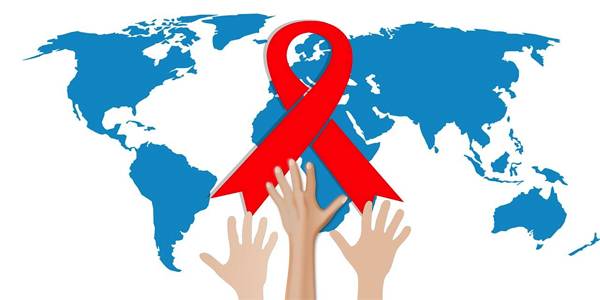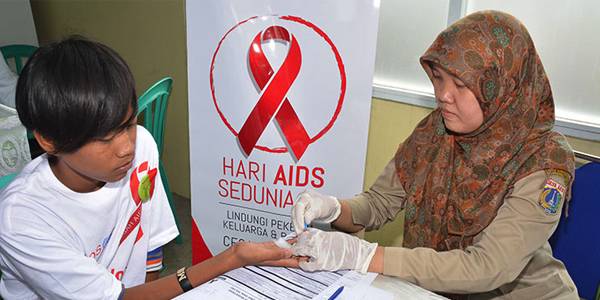ILO: World Of Work Must Play “Key Role” To Combat Significant HIV Stigma And Discrimination
News
Employers must play a “key role” to combat “significant” workplace discrimination and stigma toward people living with HIV, stressed the International Labour Organization (ILO) in response to its global study to mark World AIDS Day. The research, carried out with opinion poll company Gallup International, revealed that HIV-related discrimination persists in the world of work more than 40 years after the AIDS epidemic began.
The study of 55,000 people from 50 countries, showed that 4 out of 10 respondents say people living with HIV should not be allowed to work directly with those who do not have HIV. As many as 6 in 10 people supported mandatory HIV testing before people are allowed to work.

The research also revealed how stigmatizing and discriminatory attitudes are fueled by a lack of knowledge on HIV transmission. For example, only half of those asked knew that HIV cannot be transmitted by sharing a bathroom, and only a quarter correctly answered questions about how HIV is transmitted. These myths and misconceptions contribute to stigma and discrimination globally, confirmed the report.
“The world of work has a key role to play,” said Chidi King, Chief of the ILO’s Gender, Equality, Diversity, and Inclusion Branch. “Stigma and discrimination in the workplace marginalize people, push people living with HIV into poverty, and undermine the goal of decent work."
The study found that views on HIV varied considerably between regions and age groups, as well as education and income levels. For example, the lowest tolerance for working directly with people with HIV was found in Asia and the Pacific, where just 40% said people living with HIV should be allowed to work with people who do not have HIV. Similar views were echoed in the Middle East and North Africa. For example, in Lebanon, Saudi Arabia, and Egypt, less than 40% of respondents say people living with HIV should be allowed to work directly with others who aren’t living with the virus. In comparison, 83.8% of US respondents said people living with HIV should be allowed to work directly with others who don’t have it. Notably, HIV prevalence in the US is lower than in many other countries.
Younger age groups are also more likely to say people living with HIV should be allowed to directly work with others who aren’t HIV-positive, compared to the oldest age group. Globally, 53.1% men ages between 15 and 29 said people living with HIV should be allowed to work directly with others who do not have the virus, compared to 43.5% of the oldest group of men (55+) – a gap of 9.6 percentage points. Interestingly, this gap is much smaller (at 4.4 points) between women in the youngest and oldest age groups.
A person’s educational attainment is also strongly linked to whether a person believes someone living with HIV should be allowed to work directly with those that aren’t. Globally, 68% of respondents with a tertiary education (16+ years of education) say people living with HIV should be allowed to work directly with others that aren’t living with the virus, compared to 55.4% of those with a secondary education (9-15 years of education) and 39.9% of those with a primary education (0-8 years of education).

Populations on higher incomes are also more likely than those on lower incomes to say people living with HIV should be allowed to work directly with others who do not have it. Around 54% of respondents in the top income quintile hold this view, compared to 44.9% from poorer households.
The report also sheds some light on why people hold these views. The most cited reason for saying a person living with HIV should not be allowed to work in direct contact with those who don’t is the “risk of other people getting infected with HIV.” Other commonly cited reasons include “people living with HIV can spread illnesses other than HIV,” and “people living with HIV cannot be productive at work because they are sick a lot,” as well as “people living with HIV should not associate with people who do not have HIV.”
These discriminatory views are attributed to a lack of education about how HIV is transmitted, confirmed the ILO. The report revealed that there is a broad understanding of some of the means through which HIV can be transmitted. For example, people globally are most likely to know that HIV is transmitted by sharing needles (83.7%) and through unprotected sex (83%). More than 7 in 10 respondents indicated that hugging or shaking hands is not a route by which HIV can be transmitted. However significantly fewer people, 51.9%, are aware that HIV can’t be transmitted by sharing a bathroom, and just 39.7% know that HIV can’t be transmitted by kissing.
“It is shocking that, 40 years into the HIV and AIDS epidemic, myths and misconceptions are still so widespread. A lack of basic facts about how HIV is transmitted is fueling stigma and discrimination,” added ILO’s King. “This survey is a wake-up call to reinvigorate HIV prevention and education programs.”
The ILO believes that employers, as well as governments, must “play a key role to combat” outdated misconceptions about HIV. Its report offers a number of recommendations to help organizations proactively tackle HIV-related stigma and discrimination in the world of work. They include:
· Prioritizing efforts to reduce HIV-related stigma and discrimination;
· Implementing HIV programs that increase workers’ knowledge of HIV transmission and dispel myths and misconceptions;
· Engaging with networks of people living with HIV to promote HIV programs in the workplace;
· Improving the legal and policy environment around HIV to protect rights of workers;
· Abolishing mandatory HIV testing in line with the ILO Recommendation on HIV and AIDS; and
· Enhancing access to social protection, and addressing violence and harassment that can arise from stigma and discrimination.
Click here to access the full report.

